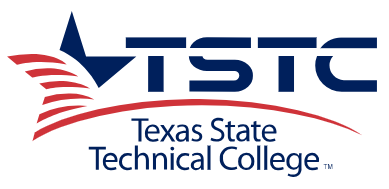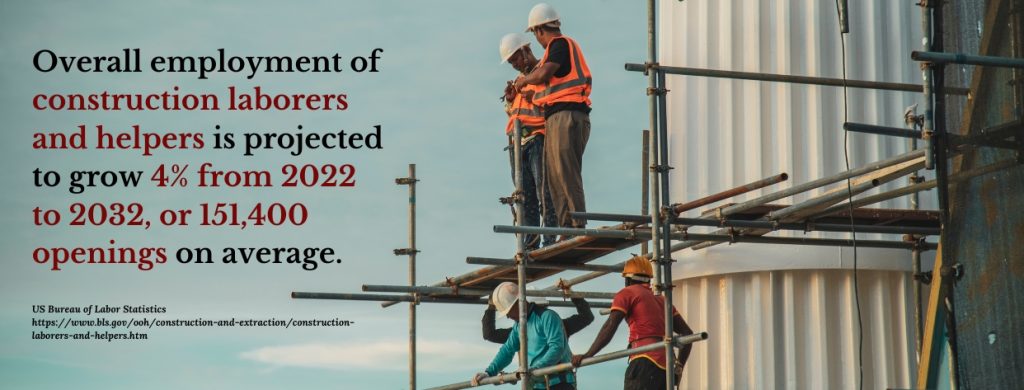Construction workers often encounter physically challenging and potentially dangerous situations, such as exposure to harsh weather, lifting heavy objects, and using power tools and machinery. They require qualities like physical endurance, problem-solving skills, flexibility, teamwork, effective communication, meticulousness, and a steadfast dedication to safety.
Participating in top-notch construction apprenticeship initiatives or enrolling in vocational schools provides individuals with the competencies and understanding essential for performing tasks efficiently and safely.
In the construction field, their dedication to hard work and unwavering focus on safety ensures excellence and contribute to the creation of a safer and improved world.
What is a Construction Worker?
A construction worker is an individual actively involved in constructing, repairing, and upkeeping the various structures that form the backbone of our environment, including residences, highways, bridges, and business establishments.
These committed professionals undertake a wide spectrum of responsibilities, encompassing everything from strenuous labor and foundational groundwork to specialized roles such as carpentry, plumbing, and electrical installations. They’re the ones who ensure that a blueprint becomes a tangible reality.
Construction workers are the backbone of the industry, using their skills and expertise to create safe and functional spaces we live and work in every day. Their duties and obligations include:
- Moving Stuff: Their job involves handling and moving construction-related items. Think big, heavy stuff like wood, metal, concrete, and all the tools needed for the job.
- Building Stuff: Building things is a big part of what they do. They put together the pieces of a structure, like walls, roofs, and floors, using the plans and instructions they’ve got.
- Concrete Magic: Working with concrete is another part of their gig. They pour it, make it all level, and give it that finished look. It’s what makes strong foundations and other important stuff in a building.
- Safety First: Safety is a top priority. They adhere to strict guidelines and put on specific safety attire to ensure their safety and the safety of others during work.
- Quality Control: Making sure the work is of good quality is key. They check measurements, alignments, and finishes to make sure everything looks and works right.
Construction workers typically had a positive job outlook, with demand influenced by factors like population growth, infrastructure development, and the housing market. The Labor Statistics Bureau has projected a 4% growth in employment for construction laborers and helpers from 2022 to 2032.
The median annual wage for construction laborers, according to official data, is $39,520.
Methodology
A rigorous selection process is a must when deciding on the trade school to attend. Our list of the best Construction Worker trade schools meets the highest standards of education and training! Each trade program satisfies these criteria:
- Delivered as an online or hybrid trade career program,
- Offers a comprehensive curriculum covering all essential aspects of the construction trade, including key skills, techniques, safety protocols, and relevant industry knowledge.
- Taught by instructors who possess a wealth of practical experience in the construction field and hold strong academic qualifications to ensure high-quality teaching and mentorship,
- Provides opportunities for hands-on training and workshops because practical experience is essential in mastering construction skills,
- Facilitates networking programs involving construction professionals and industry organizations, leading to apprenticeships, job placements, and career advancement within the construction industry,
- Fully accredited, ensuring that it meets established educational standards and provides students with recognized credentials upon completion.
5 Top Online Construction Worker Trade Schools
Penn Foster College

- Location: Scottsdale, Arizona
- Online Delivery Method: Online
- Time it Takes to Complete: 6 months (Fast Track); 9 months (Average time)
- Completion Rate: Undisclosed
- Types of Aid: Student Loans, Pell Grants, FAFSA
Penn Foster College, a nationally accredited online institution, offers a variety of career-focused programs, including those in the construction field. Distinguished by its virtual presence and absence of a physical campus, Penn Foster College delivers flexible online education that caters to the diverse needs of its students.
The self-paced online learning format enhances accessibility, and its commitment to accreditation ensures students receive recognized credentials upon program completion, making Penn Foster College an appealing choice for those seeking construction-related education online.
These online programs equip students with essential construction skills and knowledge, covering topics like materials, techniques, safety protocols, and blueprint reading. Students can study at their preferred pace, which is especially convenient for individuals aspiring to join the construction industry or progress in their careers.
The college and program are accredited by the Distance Education Accrediting Commission (DEAC) and the Council for Higher Education Accreditation (CHEA).
Houston Community College

- Location: Houston, Texas
- Online Delivery Method: Hybrid
- Time it Takes to Complete: 2 years (depending on the program)
- Completion Rate: 17%
- Types of Aid: Scholarships, Grants, Loans and Work-Study
Houston Community College (HCC) is a respected educational institution that meets the changing requirements of students who are working towards careers in the construction sector. With a commitment to accessibility and flexibility, HCC extends its reach to learners through a comprehensive array of online construction programs.
The online platform fosters a dynamic learning environment, empowering individuals to embark on rewarding careers in the construction field while balancing their studies with other life commitments. HCC’s dedication to vocational training ensures that graduates are well-prepared for the demands of this dynamic and essential industry.
As a reputable institution, HCC’s online courses focus on practical skills and knowledge, preparing students for careers in construction, including trades like:
HCC’s commitment to vocational training in a virtual setting empowers individuals to gain valuable expertise in construction-related fields while enjoying the flexibility of self-paced online learning.
Houston Community College is Southern Association of Colleges and Schools Commission on Colleges-accredited. Its outreach partners include the Associated Builders and Contractors (ABC), Goodwill Industries of Houston, Gulf Coast Community Service Association, Greater Houston Business Procurement Forum, and Texas Workforce Commission (TWC), along with other agencies and industry organizations.
Texas State Technical College

- Location: Waco, Texas and Harlingen, Texas
- Online Delivery Method: Hybrid
- Time it Takes to Complete: 12 months
- Completion Rate:
- Types of Aid: Grants, Scholarships, Work-Study Programs, Student Loans & Parent Loans
Texas State Technical College’s online programs provide high-value education through a user-friendly learning management system. TSTC is known for its affordability, with online instruction costing the same as in-person classes for Texas residents, except for potential proctored exam fees.
TSTC offers the Student Online Learning Orientation (SOLO) to enhance students’ readiness and confidence in online learning. Completing the SOLO, which takes approximately four hours, is encouraged for students who have not yet passed a TSTC online course with a grade of C or better. It can be completed at one’s own pace, returning to it as needed.
TSTC’s Building Construction Craftsman Certificate Program takes 12 months to complete, with three semesters in total and a degree plan credit of 32. The following are the courses that are crucial in the completion of this certificate:
- Semester 1:
- Residential and Light Commercial Blueprint Reading
- Construction Technology I
- Construction Site Safety and Health
- Mechanical, Electrical & Plumbing Systems in Construction I
- Semester 2:
- Concrete I
- Field Engineering I
- Construction Technology II
- Construction Technology III
- Semester 3:
- Cooperative Education – Construction Engineering Technology/Technician
- Construction Estimating I
- Construction Technology IV
TSTC is SACSCOC-accredited.
Seminole State College

- Location: Sanford, Florida
- Online Delivery Method: Hybrid
- Time it Takes to Complete: 5 weeks
- Completion Rate: Undisclosed
- Types of Aid: Federal Pell Grant, Federal Supplemental Educational Opportunity Grant (FSEOG) Program, Florida Student Assistance Grant (FSAG)
Seminole State College’s Building Trade Technologies Certificate Program enables students to tailor their career paths for various opportunities in residential and commercial construction, remodeling, and maintenance. Students in this program will also earn industry-recognized certifications in OSHA 10 and CPR/First Aid.
The program is designed for daytime track students and can be completed in four semesters. The curriculum comprises a combination of online learning and on-campus laboratory sessions. The possession of a computer and internet connectivity is a foundational prerequisite for students.
Seminole State College of Florida holds accreditation from the SACSCOC to confer associate and baccalaureate degrees. The college’s Construction Program is also accredited by the American Council for Construction Education, Inc. (ACCE).
San Diego State University

- Location: San Diego, California
- Online Delivery Method: Online
- Time it Takes to Complete: 5 months
- Completion Rate: Undisclosed
- Types of Aid: None
San Diego State University’s Certificate in Civil Sitework Construction equips students with the skills needed to transform land into a developed, construction-ready site. The program covers civil site development, including construction equipment utilization, blueprint reading, estimating, excavations, roads, bridges, and underground utilities, as well as earthwork and construction documents.
Students get online instructional sessions, which include quizzes for prompt assessment. They also enjoy the liberty to establish their preferred class schedules, typically requiring an approximate weekly commitment of five hours per class.
Guiding students through this program are a team of expert instructors, all of whom are active professionals in the construction industry. These instructors provide valuable insights and knowledge based on their extensive experience in the field.
San Diego State University is accredited by the WASC Senior College and University Commission (WSCUC).
The Importance of Choosing Accredited Construction Worker Trade Schools
When exploring construction trade schools, accreditation becomes a pivotal factor. Accredited institutions, having successfully met rigorous evaluations, exemplify their dedication to delivering high-quality education.
Opting for such an accredited trade school not only assures a superior learning experience but also provides distinct advantages like smoother credit transfers, enhanced job prospects with certain employers, and an elevated potential for securing financial aid opportunities.
Selecting an accredited trade school is, therefore, a vital step in ensuring a quality education recognized by industry standards and employers. Beyond accreditation, certifications and credentials hold immense importance in the construction sector, spotlighting your skills and commitment to industry norms.
Highly respected certifications such as OSHA, NCCER, and trade-specific credentials bolster your employability and convey your expertise to potential employers, significantly elevating your competitiveness within the construction industry.

Frequently Asked Questions about Online Construction Worker Trade Schools
What are construction worker trade schools?
Trade schools for construction workers are educational establishments focused on delivering specialized instruction and training in a range of construction trades, including carpentry, plumbing, electrical work, HVAC, and others. These institutions present tailored programs aimed at preparing students with the necessary expertise and understanding essential for pursuing careers within the construction sector.
Are construction trade schools different from traditional colleges or universities?
Yes, they are different. Construction trade schools distinguish themselves from traditional colleges or universities by their emphasis on practical, hands-on training geared towards specific construction trades.
These institutions equip students with the immediate skills and knowledge needed for a career in the construction industry, which can be particularly appealing to those seeking a quicker entry into the workforce.
Moreover, the shorter program durations at trade schools make them an attractive option for individuals aiming to gain practical expertise efficiently and enter the job market sooner.
Do students need prior experience or knowledge to enroll in a construction trade school program?
No, most construction trade school programs are designed to accommodate students with various levels of experience, including those with no prior knowledge in the field. They typically start with foundational coursework before progressing to more advanced topics.
How long does it take to complete a program at a construction trade school?
The time it takes to complete a construction worker trade school program depends on several key factors. To begin with, the program selection has a substantial impact. Opting for a carpentry-focused trade school program generally entails a one-year duration, whereas more comprehensive programs like an associate degree may necessitate approximately two years of study.
It’s important to note that trade school programs primarily focus on hands-on training and skills development for specific trades like carpentry or roofing. While these programs can get you job-ready in a shorter amount of time, they may not cover the management aspects of construction comprehensively. Therefore, after completing a trade school program, you may need to gain additional work experience and potentially earn industry-specific certifications.
How is an online construction worker trade school regarded in the field?
Online construction worker trade school programs are increasingly regarded as valuable in the field, provided they are offered by reputable institutions and align with industry standards. Employers often value the skills and knowledge acquired through these programs, especially when coupled with practical experience and relevant certifications. However, students need to choose accredited programs and gain hands-on experience to enhance their credibility in the construction industry.
What certifications or credentials can I earn through construction trade school programs?
Construction trade school programs often prepare students for industry-recognized certifications or licenses. Examples include OSHA (Occupational Safety & Health Administration) certifications, NCCER (National Center for Construction Education and Research) credentials, and state-specific licenses for certain trades.
Do students receive hands-on training in construction trade school programs?
Yes, hands-on training constitutes a fundamental aspect of construction trade school curricula. Students commonly acquire practical expertise through participation in workshops, laboratory exercises, and engagement in real-world construction projects. This experiential learning not only enhances their technical skills however, it also prepares them effectively for the challenges and demands of the construction industry.
What are the job prospects after completing a program at a construction trade school?
Graduates of construction trade school programs keep a competitive edge in the job market because of specialized training and hands-on experience. Their ability to demonstrate proficiency in specific construction trades enhances their desirability to employers seeking qualified and reliable workers.
Additionally, as infrastructure and construction projects continue to evolve and expand, the demand for skilled tradespeople remains resilient, making these programs a reliable pathway to a stable and potentially lucrative career in the construction industry.
For more valuable information, see the following:

